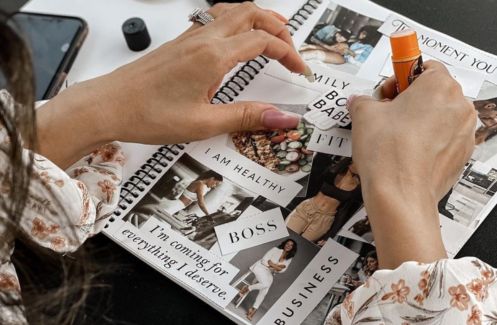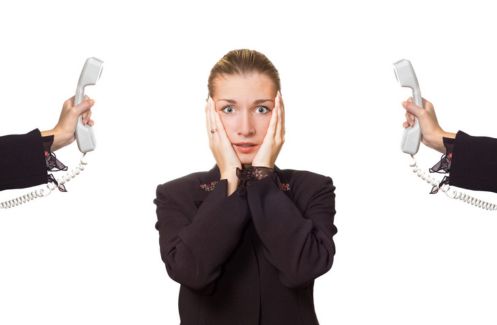Does your partner mock you, ignore you or even control what you wear? Sally Brown reveals 14 signs of emotional abuse in a relationship that you can’t ignore
Today, December 3rd is Giving Tuesday.
Giving Tuesday is a day where everyone, everywhere can do something to support a good cause.
To support this day, Avon will be donating 50% of proceeds of the sale of their new Epic Lipstick in shade Feisty, £8 to Refuge – a charity providing specialist support for women and children experiencing domestic abuse.
The launch of the new lipstick coincides with the UN’s iconic 16 Days of Activism against Gender-Based Violence campaign (25th November – 10th December).
The lipstick is a tribute to Rachael Slack who was murdered in 2010 at the hands of her ex-partner, following years of domestic abuse.
According to Women’s Aid, an estimated 1.3 million women experience domestic abuse each year. But they say, ‘these data do not take into account important context and impact information’, such as who experienced abuse in context of power and control.
An estimated 1.3 million women experience domestic abuse each year.
There is growing awareness around the signs of emotional abuse, as well as physical violence. ‘Emotional abuse can be insidious, creeping into your relationship and gradually undermining your self-belief and confidence’, says Healthista psychotherapist Sally Brown.
‘Emotional abusers can be skilled at convincing you that everything is your fault, so you start to question yourself, and no longer trust your gut instinct – you may even feel you are going crazy.’
Some of the signs are more obvious than others, but here are 14 that Sally Brown says you should never ignore.
#1 You are mocked
Your other half loves to tell ‘funny’ stories at your expense – whether it’s how hopeless you are at managing money/driving/being organised, or how you always overdo it/make a fool of yourself at social events.
If you object, you are accused of having no sense of humour or being oversensitive. You start to wonder if the digs and jibes really are just teasing and you’re missing the joke.
The easy way to tell – when your partner makes one of these ‘jokes’ in public, does anyone laugh or is there an uncomfortable silence? If a joke makes others uncomfortable, your partner is telling it to undermine you.
#2 You feel guilty all the time
You feel guilty or slightly ashamed all the time without knowing what about. You become hyper-vigilant by monitoring your behaviour to avoid giving your partner a reason to criticise you; a feeling of ‘walking on eggshells’.
But the goalposts seem to move all the time so you never know how you will irritate or disappoint him next.
The irony is, an abuser can even make you feel guilty for their own bad behaviour – they got drunk because you ‘upset them’ or ‘stressed them out’, or you’re just ‘being jealous’ over their flirting.
#3 Suddenly you need ‘protecting’
If you go out without your partner you’re either given a curfew or they insist on picking you up. They ask you to Snapchat a picture of who you are with when you get there.
They tell you they are just taking care of you, but really, they are checking up on you, and keeping you on a leash that will just get shorter and shorter.
#4 They makes grand gestures
When an abusive partner knows they have overstepped the line and you are questioning the relationship, get ready for a grand gesture – an expensive meal out, a surprise weekend away, an unexpected gift or bunch of flowers.
The original problem remains unresolved, or not even acknowledged – a grand gesture buys your silence, and your part of the deal is not to insist on talking things through.
#5 You’re being gaslighted
Gradually, you get the feeling that things just don’t quite add up – your partner contradicts something they have told you previously, or you suspect you’re not getting the whole picture (about their last relationship or why they left their last job).
They may also deny doing or saying something that you clearly remember, but they deny it with such conviction and confidence that you start to doubt yourself.
This insidious form of manipulation is called ‘gaslighting’, and it’s designed to make you doubt your mental health.
#6 They burst your bubble
You come home full of excitement because a great business opportunity has come your way or you’ve been asked to get involved with a project you feel passionate about.
But your partner immediately throws cold water on your plans, telling you all the ways that things would go wrong, or that it’s a bad idea – or he starts a completely unrelated argument just to burst your bubble.
In future, you gradually find yourself not sharing your ideas and successes with them, because you know you won’t get a positive reaction.
#7 Backhanded compliments are their stock in trade
When you first met, you felt flattered by the attention your partner paid to how you look.
But as time goes by, the compliments have become few and far between, replaced by comments about how ‘wrong’ your look is – that top doesn’t suit you, you’re putting on weight, what’s going on with your hair? If you object, you’re once again being ‘oversensitive’.
#8 They have no empathy
If you talk about a problem at work, you’re ‘over-reacting’. You are allowed a short time to vent about major upsets, then you are expected to ‘get over it’ (so you can focus your energy and attention once again on your partner and their needs).
Some emotional abusers disappear when you need them most, or become extra critical.
#9 You’re always in the wrong
Whether it was something you said six months ago, not telling your partner something that they believe they have a right to know, or letting them down in some way (putting your needs before theirs), an abusive partner will keep a mental tally and regularly remind you of your crimes.
They may even add things that happened before you met, encouraging you to be ‘honest’ about your past sexual history, for instance, only to later use that information as evidence of your badness.
#10 The purse-strings tighten
Controlling you financially is a classic tactic of an abusive partner; something known as financial abuse. They may have started by giving you advice that really helps, helping you sort out debts, or being more financially responsible.
Soon, your partner steps up the pressure to ‘be careful’ with money. But somehow, it seems like it’s always you who has to cut back, earn more and stop spending. Your partner doesn’t consult you before they spend money.
But if there’s something you want, particularly if it involves a threat to your partner’s control over you, like training for your career, or a weekend away with friends, there will be a reason why you can’t afford it.
Find out more about the My Money, My Life campaign from domestic abuse charity Refuge here.
#11 Others become involved
When you met, your partner had plausible explanations for their feuds and fallings-out with friends and family members. But now it’s your friends and family that are ‘insulting’, ‘attacking’, or ‘trying to sideline’ your partner and you are under pressure to take sides.
Whatever the reason, your life together seems to lurch from drama to drama.
#12 People think you’ve changed
People who care about you say you seem quiet these days, or just not yourself. They wonder why you rarely go out or why you’ve changed the way you dress. And you find it hard to give them an explanation.
#13 You look forward to evenings on your own
You notice your mood is lighter one day and you remember that it’s the night your partner is going out and you get an evening to yourself.
Or, they tell you they have to go away for work in a couple of weeks and you find yourself looking forward to it. When your partner is not around, you feel like a weight has been lifted from your shoulders.
#14 He/she is stonewalling you
Your partner can withdraw emotionally from you for days, not making eye contact, not talking, and refusing to explain why (while at the same time, managing to let you know that whatever it is, it is your fault).
They may even disappear for days. When they come back, they will tell you they just needed ‘some space’. But you may never find out what was really going on.
For more signs of domestic abuse help and advice, log on to refuge.co.uk
Sally Brown is Healthista’s ‘Ask Sally‘ psychotherapist, here to answer any burning life and relationship questions Healthista readers may have.
Registered with the British Association of Counsellors and Psychotherapists, which means she has the qualifications and experience to work safely and effectively, she also writes about emotional and psychological health for the national press.
Email your problems in confidence to sally@healthista.com
Find out more at therapythatworks.co.uk or follow her twitter @SallyBTherapy
Related Healthista Content:
5 signs you’re in a toxic relationship
How to argue smart – 9 rules for fighting clean
Like this article? Sign up to our newsletter to get more articles like this delivered straight to your inbox.
















































































































